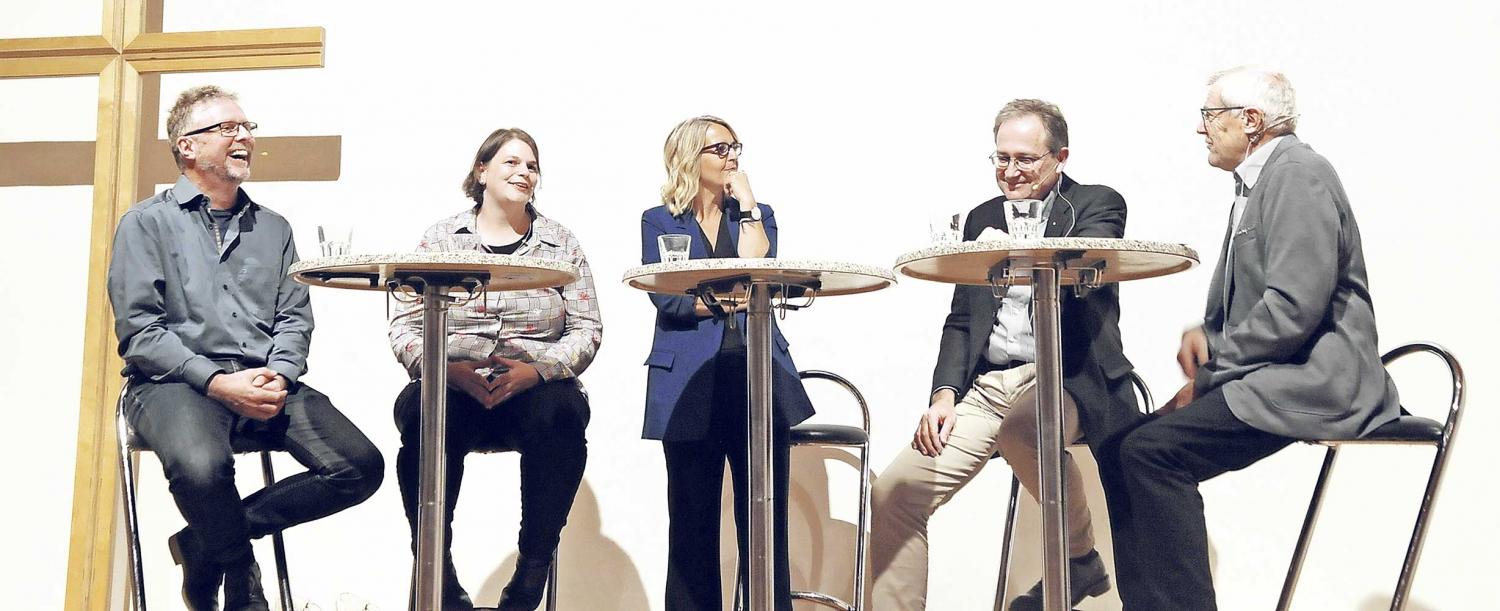The weekend of the Reformation
08.11.2019 Arts & Culture"Be brave, act with courage." Such were the pithy words uttered by Huldrych Zwingli to capture people with his ideas of Reformation and did just that when he stood up to the Catholic authorities of his time.
Who Zwingli was and how he affected his environment was debated in a panel discussion. The discussion group, assembled by organising team of the Reformation Garden, inspired the visitors on Saturday evening with incredible background knowledge and exciting links.
Shaped by humanism
The view that Zwingli was a highly educated humanist was undoubtedly shared by the four people in the discussion. He developed a very early sensitivity to the needy. Hence, his adoration probably stemmed from Erasmus of Rotterdam, who was a humanist and who demanded that the Church return to the original version of the New Testament as the source of the gospel.
What did the Reformation bring?
For the people of that time, giving up Latin in worship opened the opportunity to find their own access to the faith because this was the first to understand the Bible texts. Zwingli's claims that fasting and indulgence do not affect life have upset both church leaders and people. While free thoughts and convictions were raised among the common people, this lucrative source of riches threatened drying up the Catholic authorities.
The podium discussion opened up an additional dimension to grasp the work of Zwingli, vividly depicted in the Reformation Garden. The central role of the Gutenberg book printing process is highlighted during the guided tours conducted in the parish hall as well as the everyday life of the faithful at the beginning of the 16th century.
Based on AvS / Jenny Sterchi
Translated by Justine Hewson




